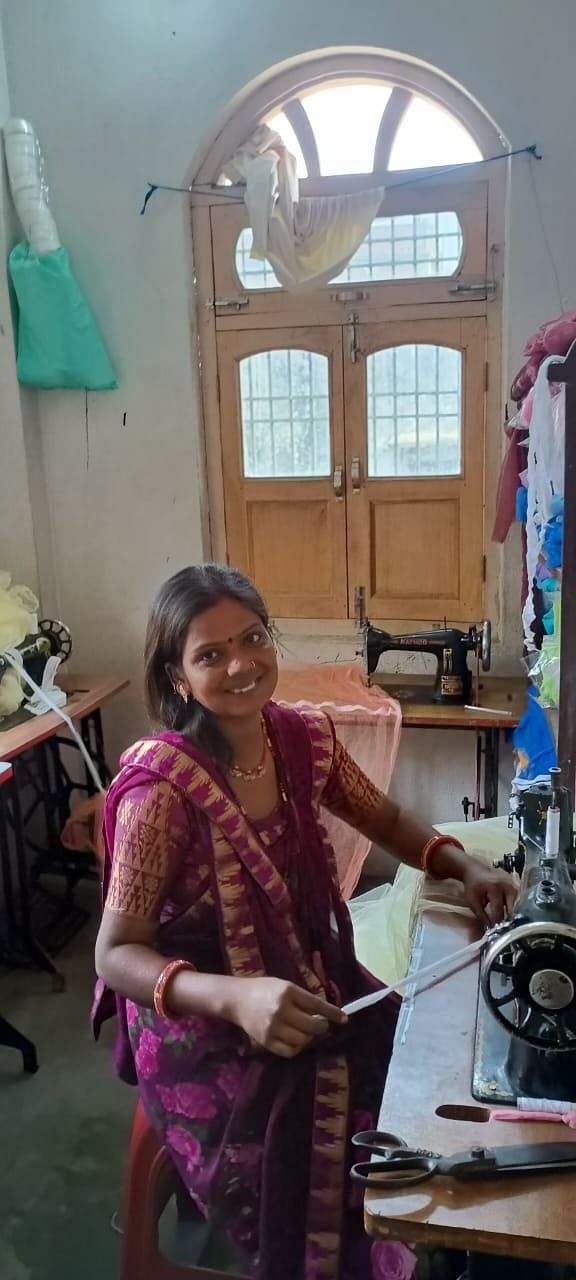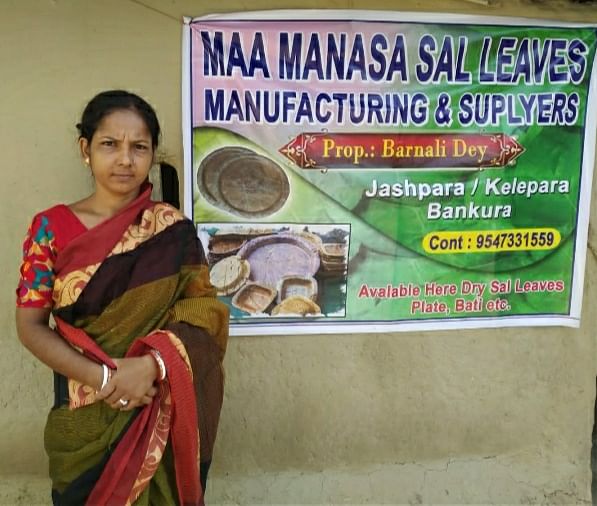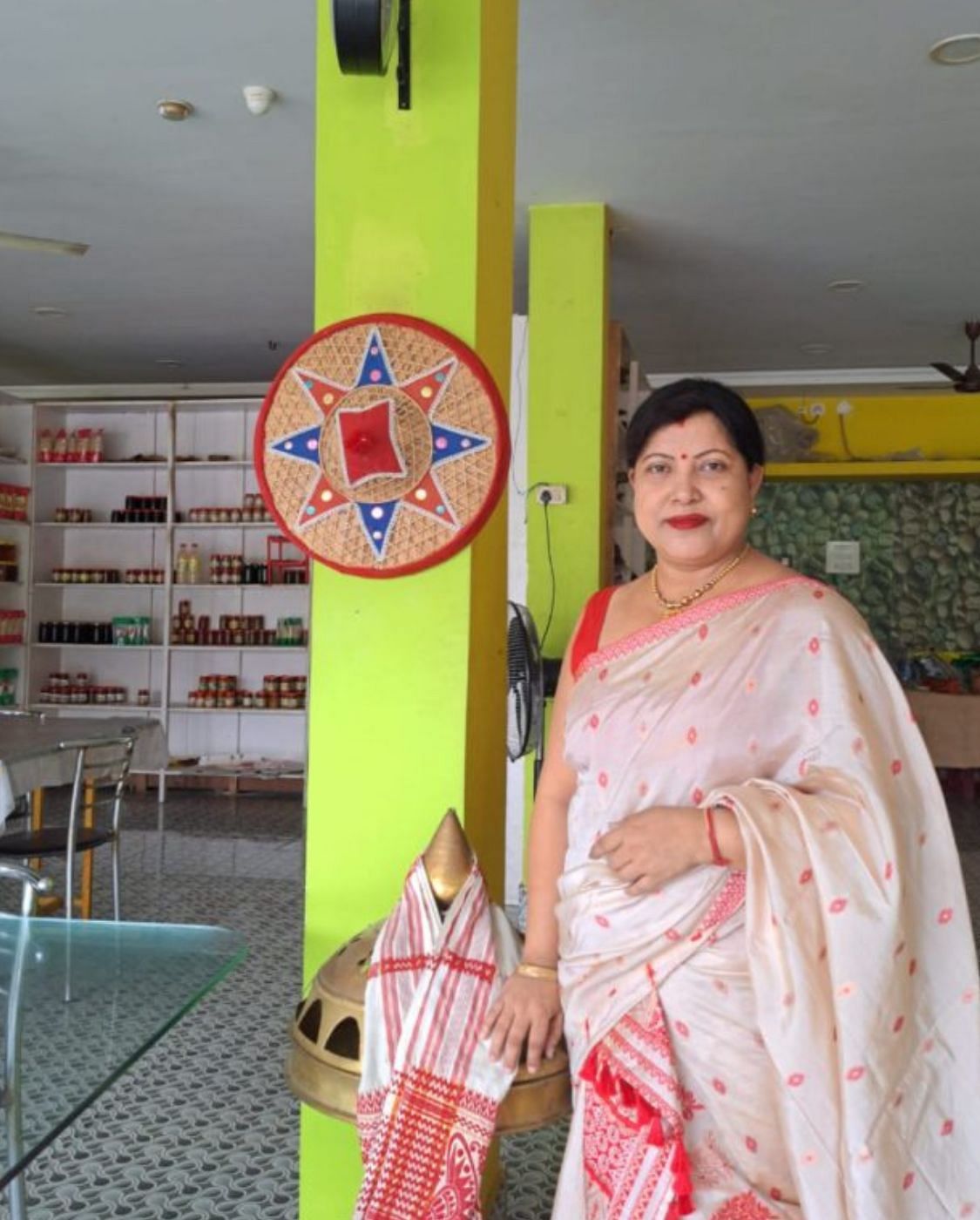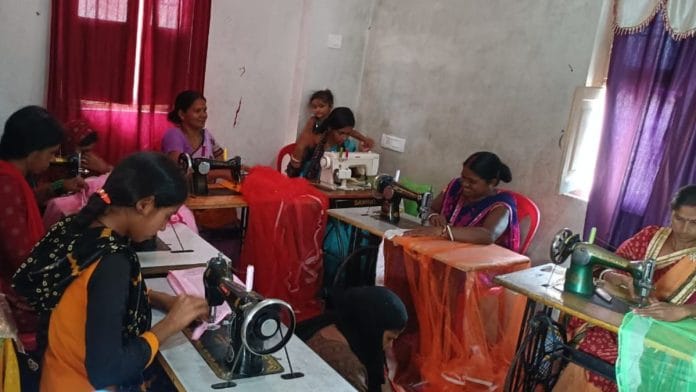New Delhi: As a child, Khushbu Devi detested sewing lessons, a skill her parents insisted that she learn. But in a strange twist of fate, that was exactly what helped her financially support her family and weave an inspiring success story, years later.
The 34-year-old, a resident of Rasulpur village in Bihar’s Muzaffarpur district, owns a mosquito net manufacturing company which has an annual turnover of over Rs 12 lakh, and provides employment to around 62 women.
“I knew the basics but never really practised until I got married in 2009. I had to take up stitching to support my family because of financial problems,” Khushbu told ThePrint, recalling her journey.

The first-of-its-kind initiative was implemented in Assam, Bihar and West Bengal where 450 women-led enterprises were selected. The initiative was aimed at helping such enterprises, with a turnover of Rs 12 lakh and above, to increase their revenue and also generate employment opportunities in rural areas. In each state, 150 enterprises were selected, of which 132 were given soft loans (i.e. loans with no interest or an interest below that of market rate), and 18 were given grants to scale up their businesses.
For this, the Deendayal Antyodaya Yojana-National Rural Livelihood Mission (NRLM) under the rural development ministry roped in Indian Institute of Management Calcutta Innovation Park (IIMCIP), a non-profit company under the aegis of IIM Calcutta to promote entrepreneurship and innovation. The non-profit organisation was tasked with the selection of eligible enterprises, providing technical assistance and hand-holding them to prepare their business plans and scale up.
At a time when the Centre has set a target to help three crore women SHG members become ‘Lakhpati Didis’, this unique initiative has put the spotlight on rural women who, on their own, have set enterprises with annual turnover of above Rs 12 lakhs, (almost all of them registering annual profit of over Rs 2-3 lakh), according to ministry officials.
The response to the initiative, ministry officials told ThePrint, has been overwhelming, with applications received from over 65,000 women-led enterprises.
“It was a revelation for us that so many rural women-led enterprises, mainly in manufacturing and service sectors, are doing exceptionally well. A large number of these enterprises have the potential to provide employment opportunities in rural areas,” Charanjit Singh, additional secretary, DAY-NRLM, rural development ministry, told ThePrint.
After the success of this initiative, which ended this June, the ministry is now planning to start a similar incubation programme in other parts of the country.
“We have now made incubation a part of the NRLM. We are now trying to rope in more institutes to replicate it in other states. We have recently signed a Memorandum of Understanding (MoU) with IIM Kozhikode and are in talks with other premier institutions,” Singh said.
Also Read: Cheaper options, no lease—why NBCC’s commercial spaces in Delhi find few buyers in private sector
‘Selection project was a learning experience’
It was a tough competition between women SHG members to make it to the list of 450 enterprises to avail the funds. The selection was done through a challenge mode.
To ensure all applicants got a fair chance, IIMCIP and State Rural Livelihood Missions (SRLMs) launched a large-scale outreach across three states, training officials to inform SHG members at the Gram Panchayat level. A voice-enabled platform was also developed to assist rural women with applications.
Of the 65,000-plus applications, IIMCIP received 29,500 applications from West Bengal, 26,500 from Bihar, and 9,600 from Assam.
“We were expecting around 5,000 applications from each state, but we got a tremendous response. It is impressive that without any formal training, so many SHG members have set up businesses with an annual turnover of Rs 12 lakh or more. Of the 450 enterprises, 10 percent were from remote areas,” Gaurav Kapoor, chief business officer, IIMCIP, told ThePrint.
Following a detailed evaluation of 65,000-plus applications by IIM Calcutta alumni, 450 enterprises per state were selected for a field visit by experts to assess the setup and accounts maintained by them. After detailed scrutiny, 250 enterprises per state were shortlisted. These were invited to present their businesses to a jury, which ultimately selected 150 women in each state to receive grants or soft loans.
Every step of the selection process was a learning experience, Kanika Talukdar (45), a resident of Nalbari district in Assam, who manufactures vermicompost, told ThePrint.
“First, they analysed our books, inspected our units and then we had to pitch out business before the jury. The jury members had a lot of questions about how we do the business and our plans to scale it up. It was a new experience for us,” she said.
Bookkeeping to branding, women learn from experts
To provide guidance and necessary handholding to enterprises, the IIMCIP assigned one mentor to 45 enterprises. The mentors, mostly industry or sector experts, analysed the performance of the enterprises assigned to them on a monthly basis for over a year.
“The mentors helped women create business plans, encouraging them to diversify, helping them identify potential markets, and advising them to focus on branding, among others. They connected them with companies to design logos and repackage their products,” Kapoor said.
For instance, Barnali Dey (37), a resident of Janpara in West Bengal’s Bankura district, began making plates from Sal leaves to support her family in 2012. Starting with just a few hundred plates, she now runs a factory producing 1.5 lakh plates monthly, employing 22 women from her village.
Barnali told ThePrint that Sal leaves didn’t really focus much on branding and packaging. While she started her business in 2012, she never focused on getting a logo made for her brand ‘Ma Mansa’. With growing demand for eco-friendly items, she was told to get a logo designed and explore the possibility of exporting her eco-friendly product.
“I got a logo for my brand, Ma Mansa. My mentor suggested exploring export opportunities for eco-friendly products, as there is huge demand for it. I’m working on it,” Barnali said.

She recently procured new machines to increase the production and is now exploring the possibility of selling products online.
But the most important thing she has learnt in the past one year, she said, was bookkeeping. She didn’t diligently maintain the books to assess the income and expenditure.
Like Barnali, Renu Mahanta (44) from Hemabori village in Assam’s Nagaon district is also focusing on branding. She began her food processing business at home in 2011. Today, she owns a store and a restaurant in her village. In 2014, she expanded by setting up a food processing factory with a loan.
In the past 13 years, Renu’s product range has grown from two to three types of pickles to 25 varieties. She said that she also had 50 tea flavours, and 12 ready-to-eat items.

While her business has expanded manifold, the most challenging part is bookkeeping, Renu told ThePrint. “I never used to get time to meticulously keep records of income and expenditure. This was an important thing I learnt during the IIM training programme, as we were expected to share the records for assessment by our mentors.”
Scaling up and providing employment to others
One of the key objectives of this incubation was to help women-led enterprises scale up, thereby creating a socio-economic impact. In the past one year, a lot of women have expanded their businesses, thereby creating new job opportunities for other women.
For instance, Khushbu, who for nearly a decade focused just on manufacturing mosquito nets, decided to diversify. She started manufacturing a range of ladies garments after she was told by her mentor not to stick to just one product.
“Over the past two years, I have built a network of around 600 women across three nearby districts who manufacture ladies’ garments. I get the orders as I have good connections in the wholesale market. I now have teams who handle marketing, packaging and accounts,” Khushbu said.
(Edited by Radifah Kabir)
Also Read: Centre to step up rental housing push for urban poor. Bigger grants for pvt players, govt agencies






